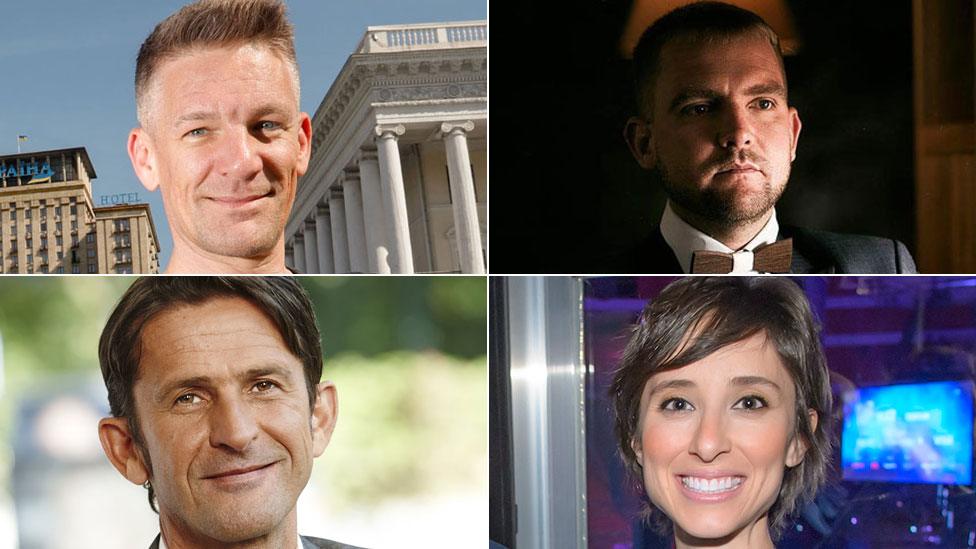Eurovision 2017: Portugal's ballad wins contest
- Published
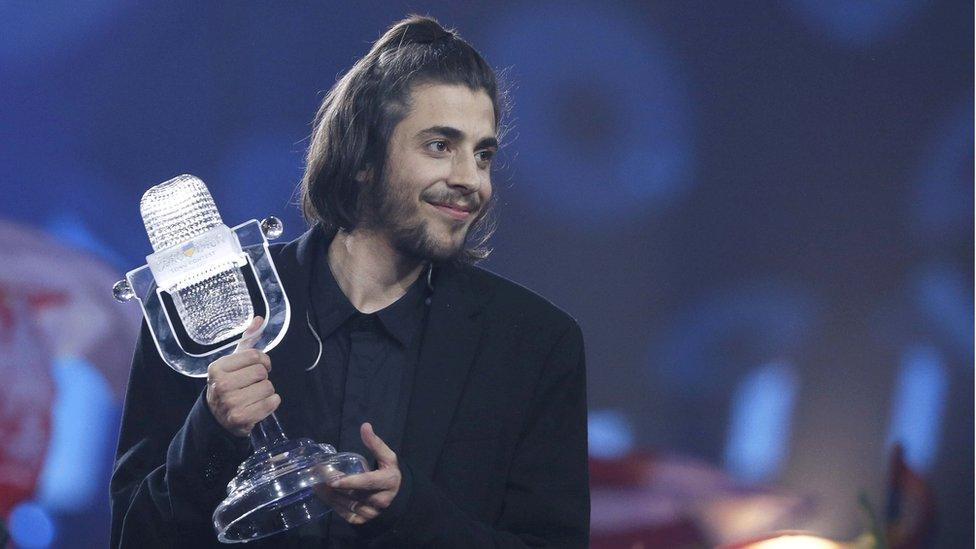
Salvador had missed rehearsals due to illness
Portugal have won the Eurovision Song Contest for the first time in the competition's history.
Salvador Sobral, 27, won with his love ballad Amar Pelos Dois, which was written by his sister.
He said on receiving the trophy: "We live in a world of fast food music. This is a victory for music... music isn't fireworks, music is feeling."
Lucie Jones, representing the UK with I'll Never Give Up on You, came 15th. Bulgaria came second and Moldova third.
Jones, a former X Factor contestant, received 111 points for her performance but didn't seem too upset, tweeting: "I wonnnnnnn!!! Oh no wait..."
It is a considerable improvement for the UK, after last year's entrants Joe and Jake came 24th with 62 points.
Jones secured the UK's highest placing since 2011, when boyband Blue came 11th with 100 points.
Sobral, who has a serious heart condition that saw him miss the first week of rehearsals, reprised his song at the end of the show and was joined by his sister Luisa for a duet.
Their song, which translates as For the Both of Us, won top marks from both from the televoters and the countries' professional juries, getting 758 points altogether. This dwarfed Jamala's win last year for Ukraine with 534 points.
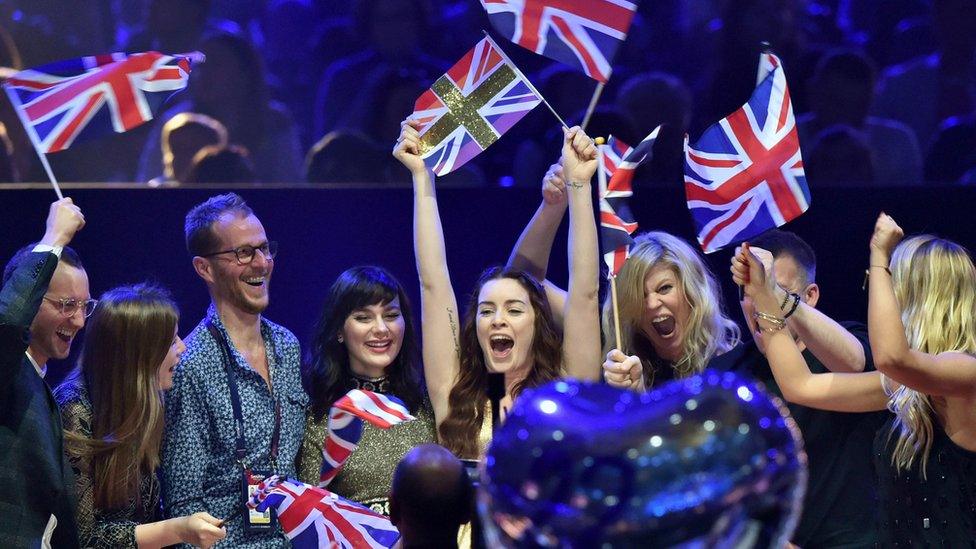
Lucie celebrated getting 12 points from Australia
Portugal had been one of the favourites to win, along with Italy's entry, which came sixth.
It wasn't all about the singing, though - last year's winner Jamala had her performance briefly interrupted by a man flashing his bottom.
BBC Monitoring reported that Ukrainian TV identified him as "scandalous" Ukrainian prankster Vitaliy Sedyuk. Jamala continued to sing "unfazed", the broadcaster 1+1 TV said.
The stage invader, wrapped in an Australian flag, was swiftly wrestled off the stage by a security guard.
Graham Norton, who was guiding UK viewers through the contest on BBC One, apologised to anyone who was offended by the incident.
The contest this year took place in the Kiev International Exhibition Centre in Ukraine. The host country could only manage 24th place out of 26 this time round.
Portugal will now host the contest next year.
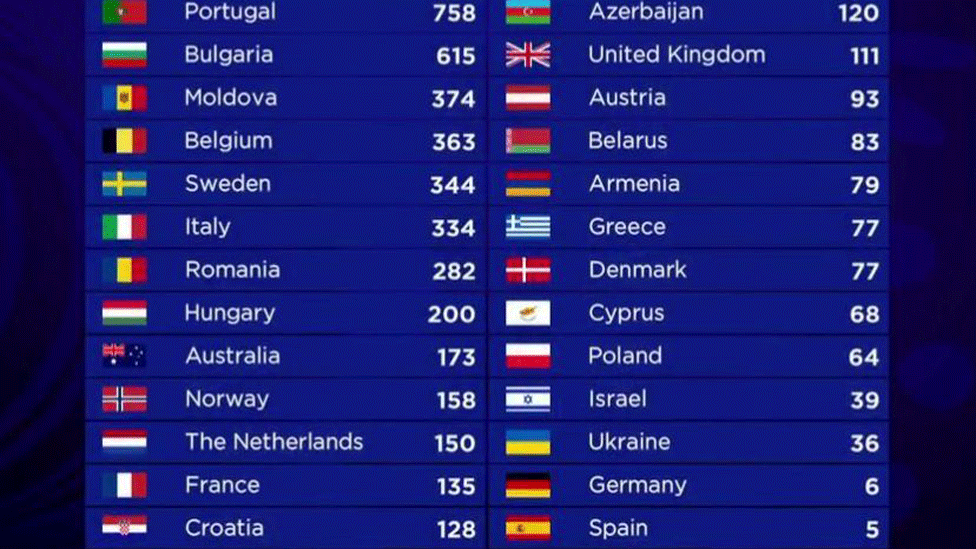
Portugal and Bulgaria were way ahead of third-placed Moldova

View from Kiev
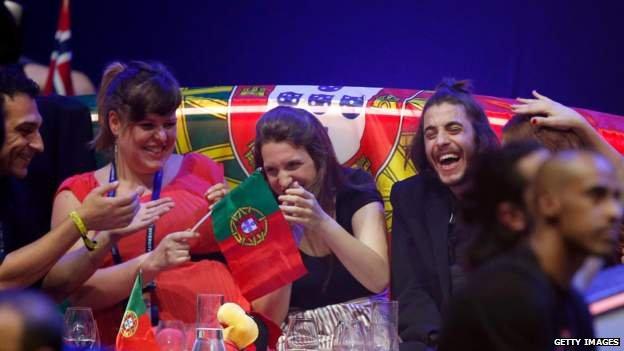
By Neil Smith, entertainment reporter, BBC News
The noise in the press room at Kiev's International Exhibition Centre was deafening as Salvador Sobral from Portugal became his country's first ever Eurovision winner.
To say the 27-year-old is a popular victor is an understatement. Where others brought slick precision sheen and dancing gorillas to the contest, he brought heart, sincerity and a simple, guileless charm.
He also brought something of a sob story - a recent bout of ill health and a serious heart condition. Yet it would be an injustice to him and his songwriting sister Luisa to suggest that sentiment was behind his triumph.
He is, simply put, one of a kind - an antidote of sorts to Eurovision's history of short-lived fads and trashy kitsch, and all the more refreshing for it.
A journalist I know choked up when discussing how he felt when he saw Salvador sing Amar Pelos Dois (Loving for the Both of Us).
Sabral entered the contest with the stated aim of making "people outside of Portugal know and recognise my work."
Job done, sir.

Follow us on Facebook, external, on Twitter @BBCNewsEnts, external, or on Instagram at bbcnewsents, external. If you have a story suggestion email entertainment.news@bbc.co.uk, external.
- Published14 May 2017
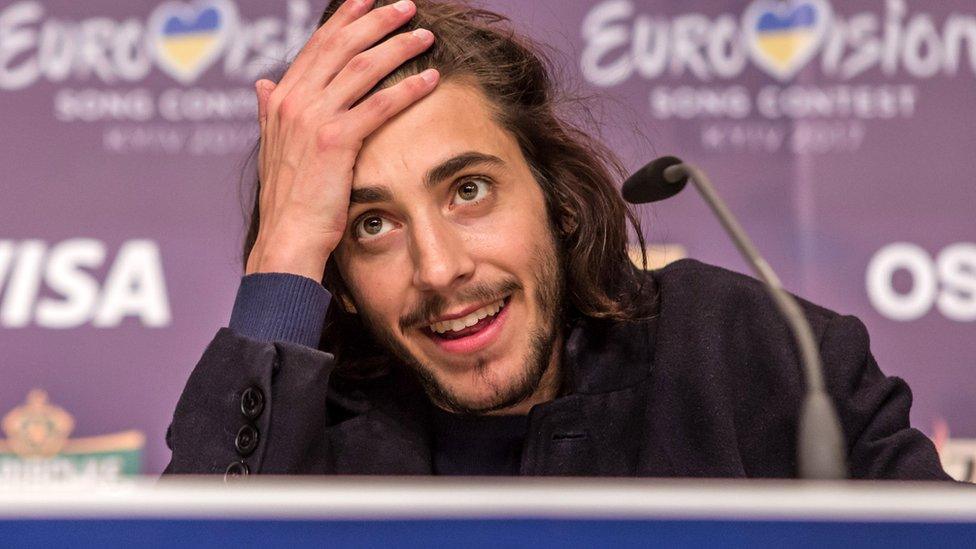
- Published12 May 2017
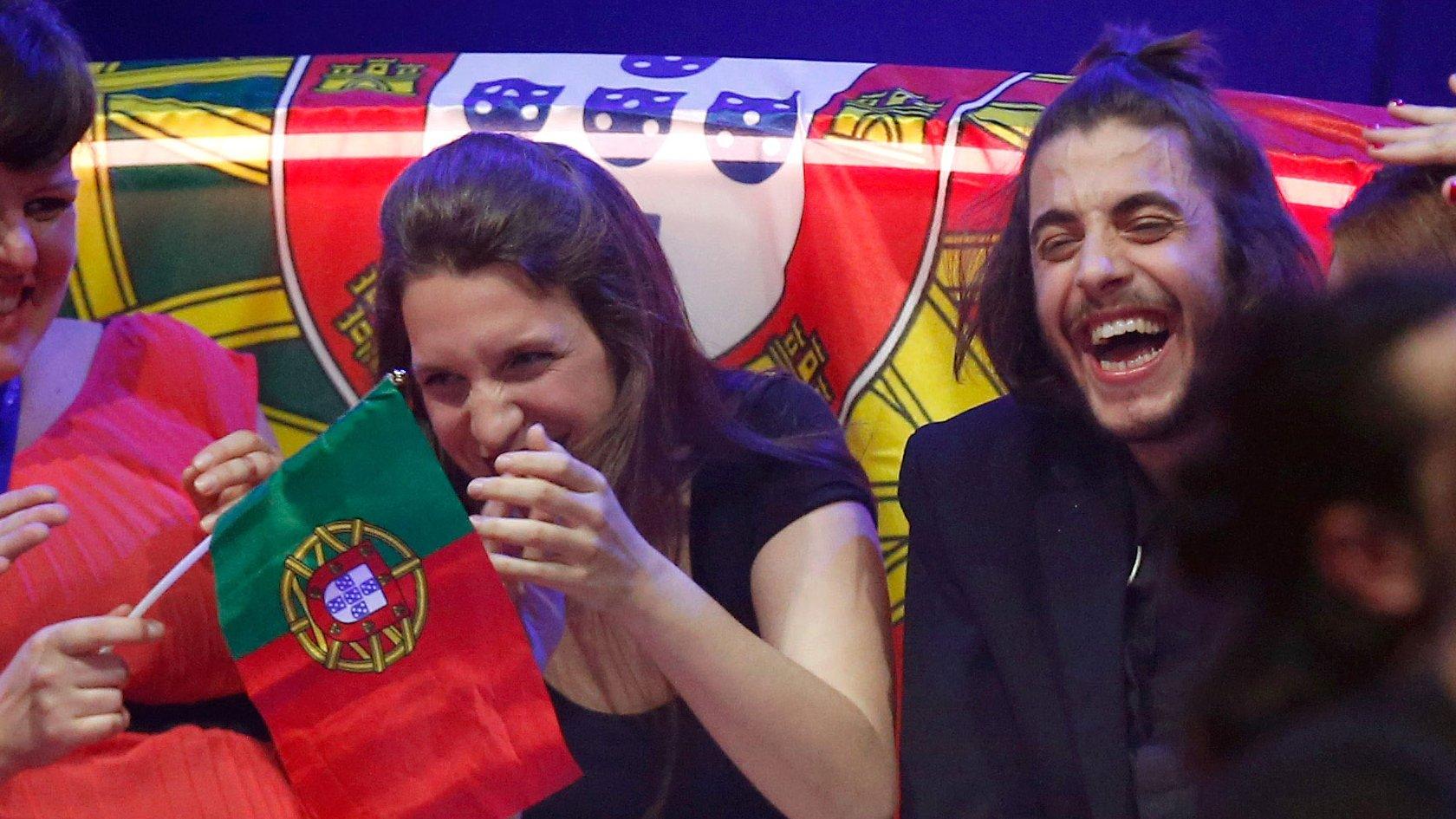
- Published13 May 2017
